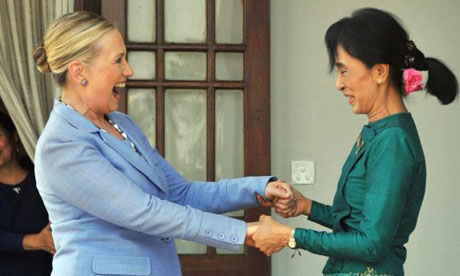OFAC Offers Lots of Guidance on Where Things Stand with Burma

Today, the United States Department of the Treasury’s Office of Foreign Assets Control (“OFAC”) issued a number of frequently asked questions (FAQs) and answers on their website regarding the current state of U.S. economic sanctions targeting Burma. The FAQs were very useful in clearing up questions that have arisen since the easing of the Burmese sanctions and the issuance of numerous general licenses relating to Burma. Here are some of the more notable points that were cleared up by OFAC:
1. U.S. banks can maintain correspondent banking relationships with non-blocked Burmese banks and with the four blocked Burmese banks named in Burma General License No. 19. This means that direct wire transferring between the two countries can, in theory, take place. I haven’t been able to confirm if any of these relationships have been set up yet despite the issuance of the general license, however.
2. U.S. persons can facilitate investment in Burma by foreign persons. This can occur pursuant to the authorization extended in General License No. 17. Facilitation is a key concern for many industries, particularly insurance when it comes to transactions which may have some sanctions related nexus. Of course, this authorization does not extend to transactions with blocked parties who appear on the OFAC list of Specially Designated Nationals and Blocked Persons (“SDN List”).
3. The FAQs clear up who needs to report on their dealings with Burma. This includes any U.S. person engaging in new investment in Burma exceeding $500,000, or any U.S. persons investing with the Myanma Oil and Gas Enterprise. These reports must be provided to the State Department. The State Department’s reporting guidelines are set forth in the State Department’s “Reporting Requirements on Responsible Investment in Burma”. Keep in mind for purposes of investing this is an aggregate threshold, meaning that the reporting requirements are triggered once the total investment reaches over $500,000 over any period of time, not just yearly. U.S. persons working on behalf of a foreign entity making investments in Burma are not subject to these reporting requirements.
4. An OFAC SDN blocking of a Burmese minister does not block the entire government ministry. This has actually come up before as there is a Burmese minister on the SDN List whose ministry is rumored to have had some potential dealings with U.S. persons.
Burma is a sanctions program that is winding down, however, it is still a sanctions program and its prohibitions need to be respected and carefully navigated in order to ensure full compliance with U.S. law. OFAC’s FAQs are a good starting point for doing so, but remember that every transactions should be viewed on its individual facts and circumstances. As always with OFAC, when in doubt err on the side of caution.
The author of this blog is Erich Ferrari, an attorney specializing in OFAC matters. If you have any questions please contact him at 202-280-6370 or ferrari@ferrariassociatespc.com.


